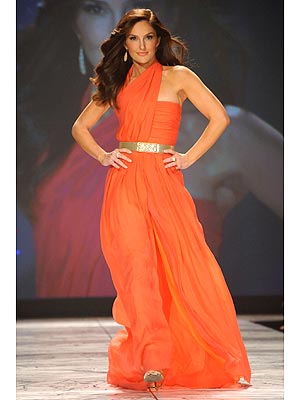TOKYO (Reuters) - Asian shares and the euro paused from recent gains on Thursday, as investors awaited the European Central Bank's policy meeting later in the day and President Mario Draghi's view on euro zone growth prospects, optimistic that the worst may be over.
"Risk assets traded heavily as market participants exercise caution ahead of the ECB, particularly with Europe's political crisis hampering sentiment," said Stan Shamu, market strategist at IG Markets. "There has been growing talk of currency wars lately and some are now saying the eurozone will soon consider a fixed rate for the single currency."
European markets are seen in tight ranges, with financial spreadbetters predicting London's FTSE 100 <.ftse>, Paris's CAC-40 <.fchi> and Frankfurt's DAX <.gdaxi> would open flat to up 0.1 percent. A 0.1 percent drop in U.S. stock futures suggested a soft Wall Street start. <.l><.eu><.n/>
Japan's Nikkei stock average <.n225> ended down 0.9 percent, retreating from its highest level since October 2008 that it scaled on Wednesday as investors took a break from selling the yen. <.t/>
But shorter-dated Japanese government debt rallied, sending 5-year government bond yields to a record low of 0.135 percent and 5-year yields to their lowest since September 2002 at 0.030 percent, on expectations that the central bank will cut interest rates to zero.
The yen's broad weakness has been driven by expectations for radical reflationary policy from the Bank of Japan, under Prime Minister Shinzo Abe's push for a mix of anti-deflation policies.
"Hopes for 'Abenomics' are supporting the mood, but investors are also sensitive to the currency moves, so right now, even slight uncertainty on Europe can be a reason to pull back," said Hiroichi Nishi, an assistant general manager at SMBC Nikko Securities.
The MSCI's broadest index of Asia-Pacific shares outside Japan <.miapj0000pus> was down 0.1 percent near a one-week low, after reaching a 18-month high on Monday.
Shanghai shares <.ssec> were set to break an eight-day rising streak, as investors booked profits on Chinese financials after the central bank stressed the need to tackle inflation and speculative housing demand.
Australian shares gained 0.3 percent, outperforming their Asian peers, on a rise in index heavyweights National Australia Bank and Telstra Corp which reported higher earnings. Australian headline job figures for January beat market expectations.
Recent data suggesting a moderate global economic recovery, even if it lacked strong momentum, underpinned industrial metals, keeping London copper prices near four-month highs and platinum and palladium near their highest level in 17 months on hopes of improved demand.
Data from deflation-swamped Japan was also positive, with the country's core machinery orders surging unexpectedly in December for a third straight month of increases, with firms expecting further improvement in the first quarter.
But analysts said Asian economies were still relying on exports to power their way to growth.
"One of the pillars of our bullish view on Asian currencies at the start of the year was the theme of global rebalancing, in which Asian economies would move away from export-dependent growth models towards a more domestic demand-driven model, allowing their currencies to appreciate to dampen their export competitiveness in favor of stronger terms of trade," said Morgan Stanley in a research note.
"However, Asian economies have been slower in the rebalancing process than we had envisioned, as seen by the heavy physical and verbal FX intervention this year."
FATE OF DRAGHI MAGIC
Growing optimism that the euro zone economy may be nearing a bottom has propelled the euro to a 14-1/2-month high against the dollar, a 34-month peak against the yen and 15-month top on sterling.
The ECB is expected to keep interest rates at a record low 0.75 percent at later on Thursday. Traders will focus on any comments about the euro's recent strength as well as the bank's view on the euro zone economy.
Vassili Serebriakov, strategist at BNP Paribas, said the ECB will likely reason that the euro's strength is due to real improvement in the financial markets and economic outlook, and thus does not warrant immediate action.
Draghi's strong verbal commitment to defend the euro and the ECB's new bond-buying scheme to help ease funding strains in highly-indebted euro zone members had significantly reduced risks of the region crumbling under the weight of its debt woes.
But a corruption scandal in Spain and uncertainty over the outcome of an Italian election later this month brought market focus back to the region's potential political instability.
"The scandal stirs memories of past scandals, and there's the possibly that it, too, could become a bigger matter, so this is making some investors cautious," said Kimihiko Tomita, head of forex at State Street in Tokyo.
The euro steadied around $1.3526, off a 14-1/2-month high against the dollar of $1.3711 hit last week.
The dollar eased 0.1 percent to 93.57 yen after touching 94.075 yen, its highest since May 2010 on Wednesday. The euro steadied at 126.60 yen, off Wednesday's 127.71 yen, its strongest since April 2010.
U.S. crude rose 0.1 percent to $96.76 a barrel and Brent also added 0.2 percent to $116.90.
(Additional reporting by Ayai Tomisawa and Lisa Twaronite in Tokyo; Editing by Sanjeev Miglani and Eric Meijer)










